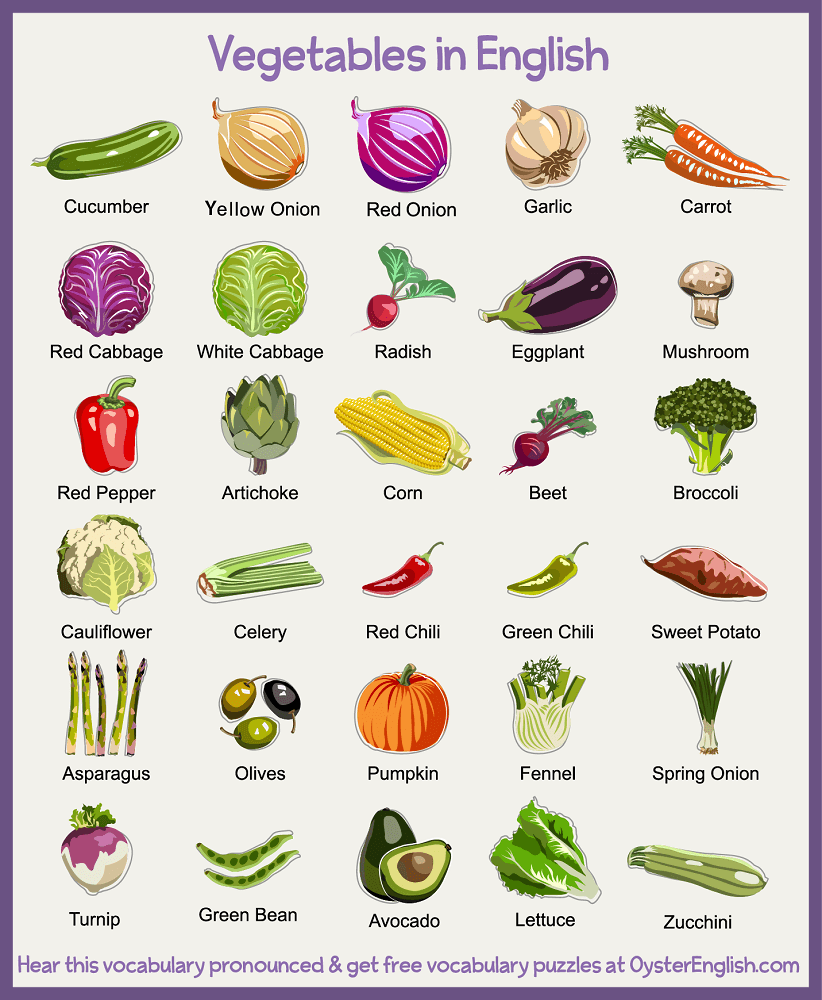Let's learn vegetable vocabulary words
[Note: This vegetable vocabulary pronunciation is in American English]
Vegetables or "veggies" as we also call them in English are really good for your health so you'll definitely want to learn the names of these words.
Click the audio player below to hear the pronunciation.
Get Your Free Vocabulary Puzzles eBook

Solving puzzles is a great way to learn vocabulary. This book contains more than 25 crossword, word search and word scramble puzzles on twenty (20) different topics.
Along with the FREE ebook, you'll receive my weekly newsletter with tips, lessons and special offers just for my subscribers.
Enter your name and email address below to get your free copy.
Food Colors
Many vegetables come in a variety of colors and flavors, so we say things like "peppers" or "onions" or "chilies" for general terms. To be more specific, we say "red pepper" or "green pepper" or "yellow pepper." Or "spring onions", "yellow onions" or "red onions", just to name a few different varieties.
Differences in British & American English
There are differences in how we say or pronounce the names of some vegetables in American and British English. For example, Americans usually say "to-MAY-toh" and in British English it's "to-MAH-toh."
There are also some differences in the actual names of the vegetables. For example, Americans normally say "eggplant" but in British English it's usually called "aubergine." Most of the names are the same but just note you may hear some differences.
Fruits or Vegetables?
Many of the "vegetables" on this list are actually fruits. In plant science (botany), fruit have seeds and come from the flowering part (ovaries) of the plant. Tomatoes, avocados, eggplants, peppers, peas and pumpkin are technically fruit according to science.
However, in every day English, we normally call all of the above foods vegetables.
Study tips for learning vegetable vocabulary
The best way to learn vocabulary is to read and use the words. Here are a few suggestions of ways you can practice:
- Look up vocabulary for ingredients in your dictionary when you are cooking at home. You can also search for English versions of recipes that you already know on the internet to learn the ingredients without using a dictionary.
- Look at an English menu the next time go out to eat. Many restaurants, cafes and bars around the world have English versions of their menu for tourists and travelers.
- Then next time you go grocery shopping, say the name of the vegetables you see at the store or market. Actually say the name out loud--it will help you to remember the words when you say them and don't just think them.
So.... what's your favorite? Which do you hate?
As for me, I really don't like celery, radishes and turnips. I'm not really a fan of fennel but I especially love eggplant, chilies, peppers, sweet potatoes and pumpkin!
- Home Page ›
- Main Vocabulary List ›
- Vocabulary


